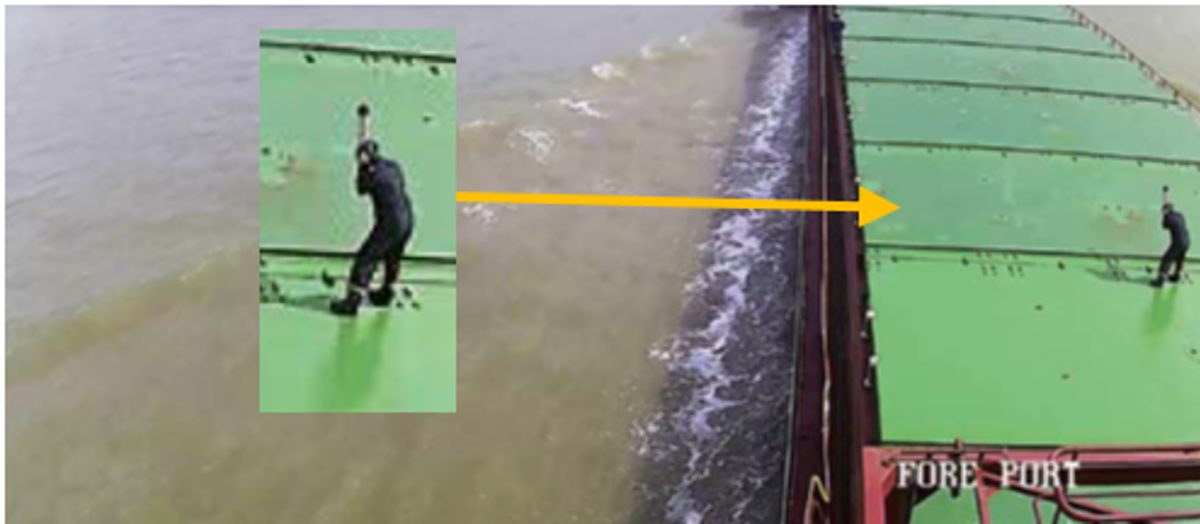MAIB: LTI – a wedge shattered causing injury
- Safety Flash
- Published on 31 July 2024
- Generated on 21 February 2026
- IMCA SF 15/24
- 2 minute read
Jump to:
The UK Marine Accident Investigation Branch has published Safety Digest 1/2024, consisting of lessons from recent Marine Accident Reports.
IMCA has reviewed the report and passes on to members some of the incidents which we consider to be of interest. This is one of them.
What happened?
Crew on a cargo vessel were preparing to open a cargo hold hatch cover, which was sealed by several wedges. The usual technique for releasing the wedges was to use a sledgehammer. A crew member quickly approached the wedge and, without taking time to prepare, swung the sledgehammer. The sledgehammer hit the wedge, but instead of coming out, the wedge remained lodged in place and shattered, sending debris flying towards the crew member. A small fragment of the securing wedge penetrated the crew member’s right leg, just below the knee. The crew member received first aid and was signed off work for three days to recover from their injury.

Crew member swinging the sledgehammer
Useful questions
- Have you performed a thorough check of equipment and the work area before operations began?
- Could deterioration of parts cause failure – even after the correct procedure and planning routines are followed?
- Take the time to think things through – consider how to safely perform an action.
- Assess the area and level of force required, the alignment of the swing – that might have resulted in an effective strike and prevented the catastrophic failure of the wedge.
Lessons learnt
Before using heavy tools, be aware of what could happen if things go wrong. In this case, swinging the hammer away from the body might have reduced the risk of being struck either by flying debris or the hammer itself if the wedge was missed.
Related Safety Flashes
-
IMCA SF 09/24
30 April 2024
-
-
IMCA SF 16/15
22 October 2015
IMCA Safety Flashes summarise key safety matters and incidents, allowing lessons to be more easily learnt for the benefit of the entire offshore industry.
The effectiveness of the IMCA Safety Flash system depends on the industry sharing information and so avoiding repeat incidents. Incidents are classified according to IOGP's Life Saving Rules.
All information is anonymised or sanitised, as appropriate, and warnings for graphic content included where possible.
IMCA makes every effort to ensure both the accuracy and reliability of the information shared, but is not be liable for any guidance and/or recommendation and/or statement herein contained.
The information contained in this document does not fulfil or replace any individual's or Member's legal, regulatory or other duties or obligations in respect of their operations. Individuals and Members remain solely responsible for the safe, lawful and proper conduct of their operations.
Share your safety incidents with IMCA online. Sign-up to receive Safety Flashes straight to your email.